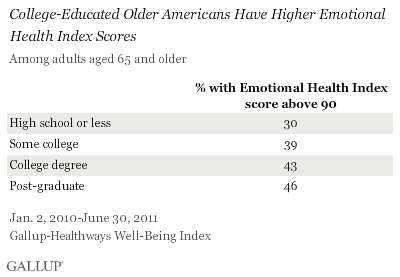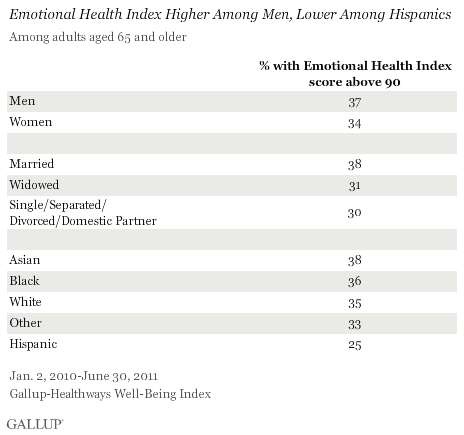
Older Americans with a college education are significantly more likely to be emotionally well-off than are people in this age group with less education. Among those aged 65 and older, these results hold even after statistically controlling for gender, race, marital status, employment, satisfaction with standard of living, and regional location.
The emotionally well-off are defined as individuals whose scores on the Gallup-Healthways Emotional Health Index are above 90, out of a maximum of 100. The Emotional Health Index is based on a comprehensive measure of emotional wellbeing asking Americans whether they felt “a lot of” each of the following emotions the day before the survey: smiling/laughing, learning/doing something interesting, being treated with respect, enjoyment, happiness, worry, sadness, anger, and stress. Among those aged 65 and older, 35% score above 90.
The Demographics:
Older men are slightly more likely than older women to score above 90 on this composite measure of emotional wellbeing, even after statistically keeping all other variables constant. Among racial and ethnic groups, older Hispanics are the least likely to have Emotional Heath Index scores above 90, and this difference persists after holding all other variables constant.
Being married does not appear to improve older Americans’ emotional health. The apparent lack of a “marriage advantage” may be explained, at least in part, by the fact that marital status alone does not take into account the quality of the relationship or other related factors.

An interesting study and another reason to pursue a college education = better emotional health in your senior years.


One thought on “Older Americans with a College Education Have Better Emotional Health After Age 65?”
Comments are closed.